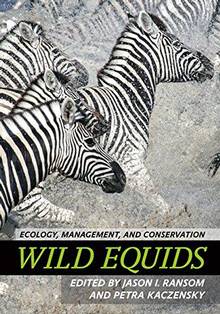Wild Equids
Ransom, Jason I. / Kaczensky, Petra
Éditeur : JOHNS HOPKINS
ISBN papier: 9781421419091
Parution : 2016
Code produit : 1321187
Catégorisation :
Livres /
Science /
Biologie /
Zoologie
Formats disponibles
| Format | Qté. disp. | Prix* | Commander |
|---|---|---|---|
| Livre papier | En rupture de stock** |
Prix membre : 81,73 $ Prix non-membre : 90,81 $ |
*Les prix sont en dollars canadien. Taxes et frais de livraison en sus.
**Ce produits est en rupture de stock mais sera expédié dès qu'ils sera disponible.
Description
Wild horses, zebras, asses, and feral equines exhibit intriguing and complex social structures that captivate the human imagination and elicit a wide range of emotions that influence conservation and management efforts. This book, spearheaded by Jason I. Ransom and Petra Kaczensky, brings together the world’s leading experts on equid ecology, management, and conservation to provide a synthesis of what is known about these iconic species and what needs to be done to prevent losing some of them altogether. The most comprehensive conservation book on wild equids in decades, this title will enlighten not only equid researchers, but also mammalogists, conservationists, and equine professionals. Readers will find new insight into the lives of the world’s horses, zebras, and asses, understand the basis of our relationships with these animals, and develop a greater understanding of where equids come from and why they are worth conserving.























